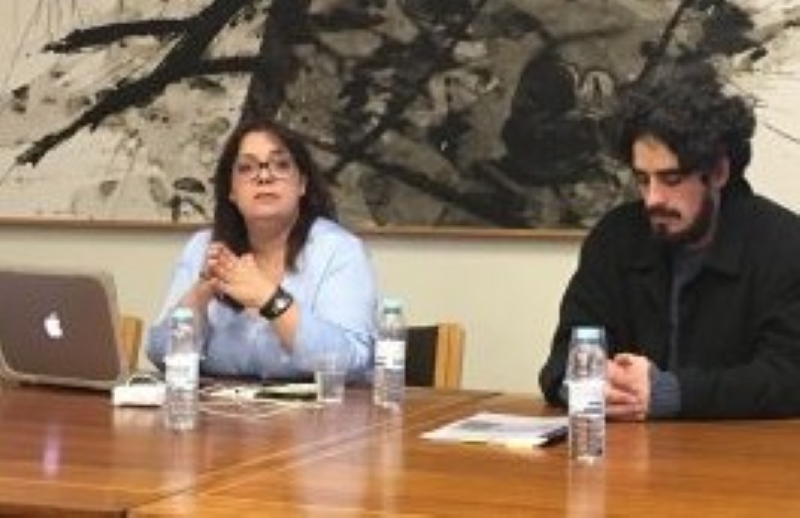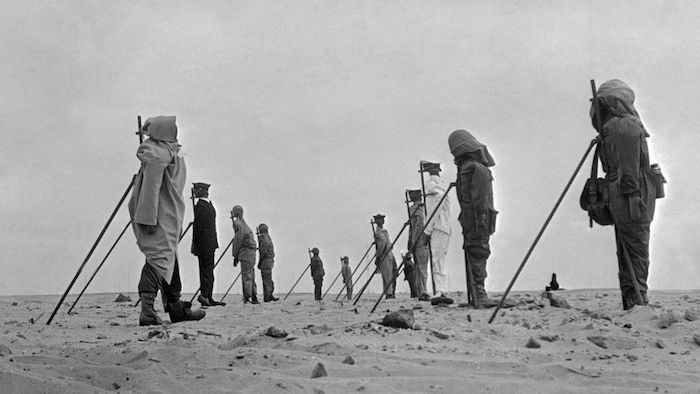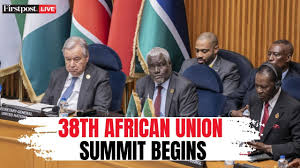
In 2025, we mark 50 years since Morocco’s illegal occupation of Western Sahara — a colonial occupation sustained by a repressive military apparatus, a deliberate policy of demographic substitution, and, above all, a web of international complicity. It is a colony in the full Marxist sense of the term: a territory exploited, dominated, and manipulated to serve the economic and geopolitical interests of a metropolis aligned with imperialism.
The essential characteristic of colonialism is the denial of peoples’ right to self-determination and the use of force to maintain an unequal relationship that benefits the occupying power. In the case of Western Sahara, this definition fully applies. Morocco acts as an extension of imperialist interests — particularly those of France, Spain, and the United States — in exchange for recognition, weapons, diplomatic support, and economic protection. Its presence in the territory is an extension of capitalist logic, which requires subdued territories and resources to fuel accumulation in the metropoles.
The complicity of these powers is total. France remains Morocco’s main diplomatic ally, using its seat on the UN Security Council to block any meaningful progress toward Sahrawi self-determination. The United States, in addition to supplying arms — including Stinger missiles and surveillance technologies — unilaterally recognized the occupation as legitimate, in blatant disregard of UN resolutions. Spain, the former administering power, maintains a stance of active surrender, yielding to commercial and energy interests with Morocco and abandoning its legal and moral responsibilities toward the Sahrawi people.

The occupation of Western Sahara is not only military or political — it is profoundly economic. Morocco uses the occupied territories as a means of managing its domestic labor surplus, relocating Moroccan workers to sectors such as administration, mining, and fishing, while Sahrawis are systematically excluded from public employment, subjected to structural unemployment, and persecuted when they try to organize. The goal is clear: displace, erase, replace. This is not classical exploitation of indigenous labor; it is its elimination as an economic and political subject.
Since Morocco’s violation of the ceasefire in 2020, the territory has once again entered a state of war. The Moroccan army has used armed drones to target Sahrawi civilians, including minors, in the liberated zones and near refugee camps. These war crimes are ignored — or even covered up — by Rabat’s Western allies, who continue to provide political and military support to the regime.
Cases such as Sidi Abdallah Abbahah, imprisoned since 2010 and in prolonged solitary confinement since 2018, or others from the Gdeim Izik group like Abdeljalil Laaroussi and Mohamed Bourial, demonstrate a policy of systematic repression, prolonged torture, and denial of medical care — practices condemned by UN bodies such as the Committee Against Torture. Yet these decisions are consistently ignored by Morocco, with the complicit silence of its international partners.
The Sahrawi people’s struggle directly embodies what Lenin called the right of oppressed nations to national liberation. In Lenin’s view, a true proletarian revolution cannot exist without a firm position in support of anti-colonial struggles. The global revolution demands active solidarity with all peoples fighting against colonialism and imperialism. Western Sahara is today one of these centers of resistance, confronting a global system of domination upheld by capital and alliances between local elites and foreign powers.
Denouncing what is happening in Western Sahara is not just an act of solidarity — it is a revolutionary obligation. To ignore this reality is to align, by omission, with imperialism and the colonial violence it perpetuates. The liberation of the Sahrawi people will not come from diplomatic concessions among capitals. It will come from the persistence of their struggle, from conscious international support, and from the inevitable collapse of a system that denies sovereignty to peoples while serving the interests of profit. It is time to break the silence. It is time to say, clearly: Western Sahara is a colony — and it must be freed.
As Karl Marx wrote, ‘a nation that oppresses another can never be free.’ Colonial oppression is not merely a matter of political power — it is an economic structure that denies self-determination and uses the territory and people as tools of accumulation for the metropolis. In Western Sahara, this accumulation is shared between Morocco and the imperialist centers that support it.
A central element of the occupation is the growing collaboration between Morocco and Israel — an alliance that has existed since the beginning of the occupation but has become public and institutionalized in recent years. The delivery of drones, surveillance technology, weapons, and military advisers to the Makhzen is just one aspect. Israeli companies like Ratio Petroleum are now involved in oil exploration in Sahrawi waters, violating international law and deepening colonial plunder with complete impunity.
It is common in progressive circles to celebrate the liberation of African peoples and to recall the anti-colonial struggles of the twentieth century. However, the case of Western Sahara remains an open wound — one of the few examples of inherited colonialism still active in the world today. Its specificity is brutal: it is not merely a military occupation, but a chain of colonialism sustained by new forms of transnational domination — armed, energetic, diplomatic, and symbolic.
In recent years, we have witnessed the expulsion of France from several Sahel countries, such as Mali, Burkina Faso, and Niger. However, the replacement of that influence with Morocco represents a continuation of the same yoke under a different flag. The Atlantic access project supposedly offered by Morocco to these countries involves using the port of Dakhla — located in occupied Sahrawi territory. This is not African sovereignty: it is recycled colonialism, with Morocco acting as the operational arm of French imperialism on the continent.
This relationship between Morocco and Israel is more than a tactical alliance: it is a strategic synergy of colonial interests. Both regimes practice forms of settler colonialism — one in Western Sahara, the other in Palestine — and they share repressive know-how, military technology, and population control practices. What is exported to Western Sahara is not only weaponry, but methods of domination, mechanisms of silencing, and demographic engineering — all with the endorsement and financing of Western powers.
The presence of Israeli companies in the energy and security sectors of the occupied territories further reinforces Morocco’s integration into a network of imperialist domination that instrumentalizes Sahrawi land for purposes entirely unrelated to local development. It is the continuation of a logic in which colonized peoples are treated as logistical obstacles or collateral damage in the process of capitalist expansion and geostrategic control.
This reality shows that the case of Western Sahara is not simply a matter of self-determination — it is a structural issue of the global order. The continuation of the occupation serves the system of global domination. France ensures diplomatic cover. The United States provides weapons and UN silence. Israel applies tested models of repression. Morocco acts as the local manager and public face of this multinational colonial scheme.
The international left — particularly Marxist-Leninists — cannot continue to treat the Sahrawi cause as peripheral. This is a struggle that synthesizes the contradictions of global capitalism: resource expropriation, militarization, colonialism, racism, and collusion between local elites and imperial powers. The liberation of Western Sahara represents more than the victory of one people. It represents the collapse of a chain of exploitation and the emergence of new historical possibilities on the African continent.
Morocco’s role in North and West Africa fits perfectly within the concept of subimperialism, as formulated by Marxist theorist Ruy Mauro Marini. According to Marini, subimperialism occurs when a peripheral or semi-peripheral country in the global capitalist system acts as a regional agent of imperialism while maintaining dependency on foreign capital. These countries not only internalize the logic of imperialist domination but also reproduce it in relation to neighboring or more vulnerable peoples, functioning as local extensions of the global capitalist order.
Morocco meets all of these criteria. It is deeply integrated into the imperialist structure: a privileged partner of the European Union, a strategic ally of the United States, and a close military and technological collaborator of Israel. This trio guarantees Rabat diplomatic support, access to advanced weaponry, international forum cover, and economic investment — in return, Morocco plays the role of regional gendarme, controlling migration flows, repressing internal and external political movements, and ensuring geostrategic stability for the benefit of the Western powers.
The occupation of Western Sahara is the clearest expression of this subimperialist function. Morocco not only colonizes a territory in violation of international law but also transforms the occupation into a tool of regional projection. The most recent example of this is the so-called ‘Atlantic access’ project offered by Morocco to Sahel countries — including Mali, Burkina Faso, and Niger — via the port of Dakhla, located in occupied Sahrawi territory. This initiative, presented as African regional cooperation, is nothing more than a new form of subjecting peoples liberated from one colonial yoke (the French) to another (the Moroccan), reaffirming Morocco as the operational arm of French imperialism in Africa.
The alliance with Israel reinforces this logic. Beyond the provision of drones and surveillance technology, the presence of Israeli military advisers within the Makhzen and the awarding of oil exploration contracts in Sahrawi waters to Ratio Petroleum highlight the colonial, securitarian, and extractivist nature of the occupation. This is a clear case of the transfer of colonial methods and structures between regimes that share a common logic of repression and territorial usurpation — a true ‘axis of occupation.’ In return, Morocco offers political and logistical support to the Zionist regime.
In this sense, the case of Western Sahara cannot be seen as an isolated or regional conflict. It represents a subimperialist structure articulated with global imperialism. Moroccan subimperialism not only oppresses the Sahrawi people but also serves to preserve a system that denies true liberation to all exploited peoples of the region. Fighting it is a fundamental part of the anti-imperialist struggle of our time.
————————-
* Dr. Isabel Lourenço is a Researcher at the Center for African Studies, University of Porto, Portugal. She is specialized in African Studies, Colonialism, International Law and Human Rights.









